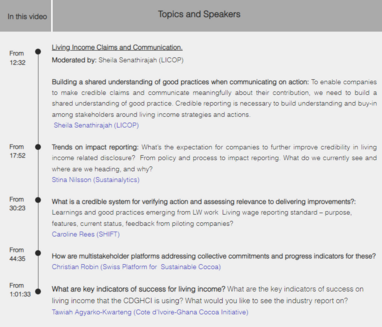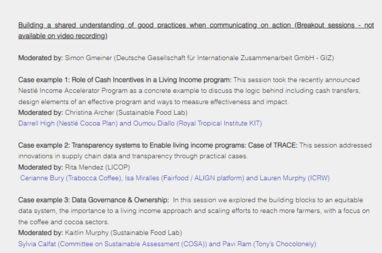June Workshop 2022
The Virtual Living Income Workshop, co-organised by ISEAL, GIZ and the Sustainable Food Lab, featured 21 speakers from a range of institutions including (but not limited to) Rikolto, Voice Network, Solidaridad Colombia, SHIFT, SCOPEinsight, Nestle Cocoa Plan, Fairfood, The Sustainable Trade Initiative IDH, Cote d’Ivoire-Ghana Cocoa Initiative, and Sustainalytics. The workshop received over 600 registrations. Simultaneous interpretation in Spanish and French was available on both days for 1 hour during the plenary session.
Individuals from 66 countries registered to the workshop. Most of the registered individuals (229) came from European countries. The next largest region was Africa (178) followed by Latin America region with (134) registrants.
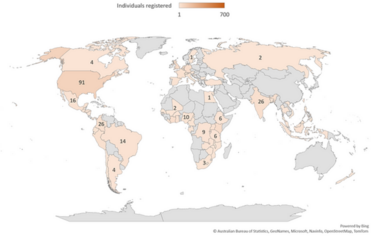
During this year we were glad to see a considerable increase of registrants coming from Africa (178) compared to (59) that registered our 2021 Living Income Workshop. Similarly, it has been interesting to see an increase in the registration of individuals from Central America and the Caribbean (44) for 2022 compared to (21) in 2021. The Living Income Community of Practice is working hard to identify strategies and generate discussions for closing the income gap at a global level and our goal is to integrate in these discussions participants from producing countries where the concept of living income could potentially bring change and generate impact.
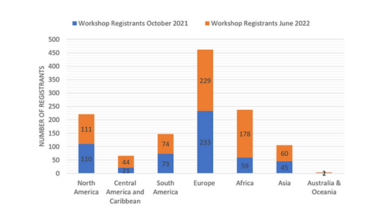
Agenda
Day 1 (15th June): What drives improvement in farmer income and who can lead and influence these drivers?
On this day we explored the building blocks for an effective living income program. We looked at the evidence on the critical drivers of farmer income at the farm, national and sector levels. The sessions provided clarity on what is needed to enable farmers to earn a living income and considered this from the perspective and roles of different actors.
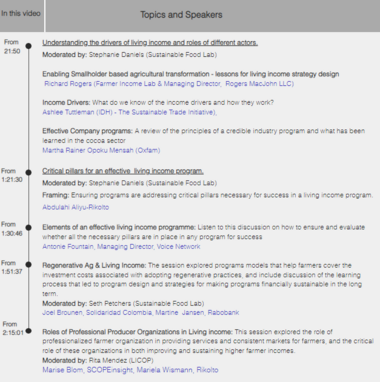
Day 2 (16th June): Can we start to build a shared understanding of good practices when communicating about action on living income?
Living income cannot be addressed by supply chain action alone. As new partnerships catalyse, we need to start building a shared understanding of good practices when we communicate about our actions and ensure that it is grounded in a robust framework. In Day 2, we brought together practitioners that shared experiences to discuss what effective action, monitoring and reporting could look like for living income.
